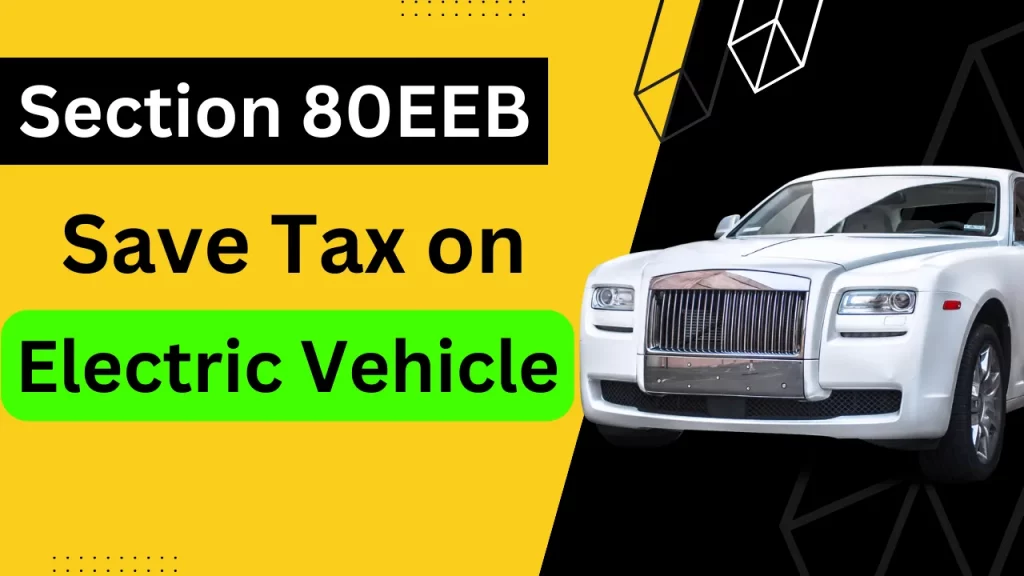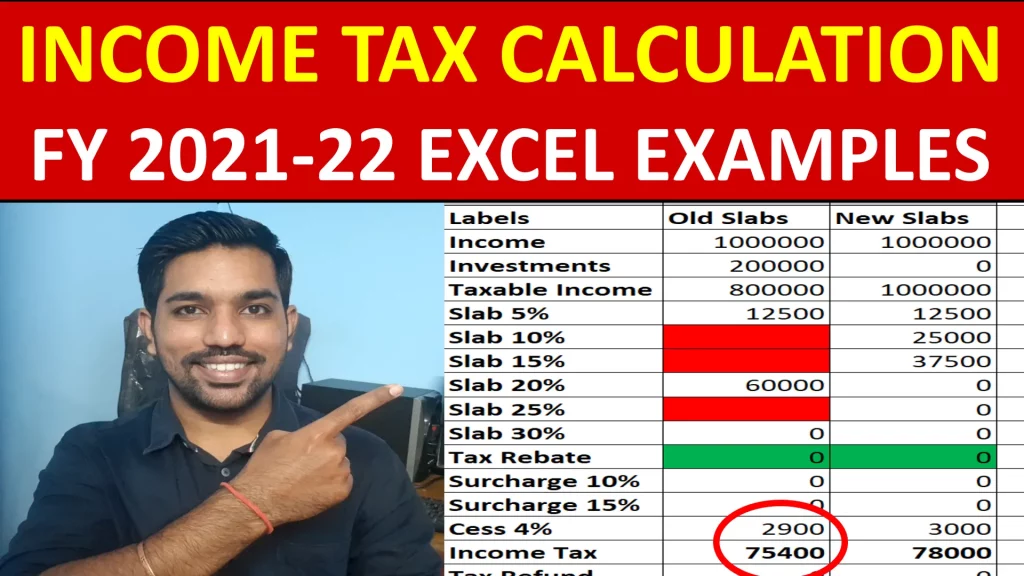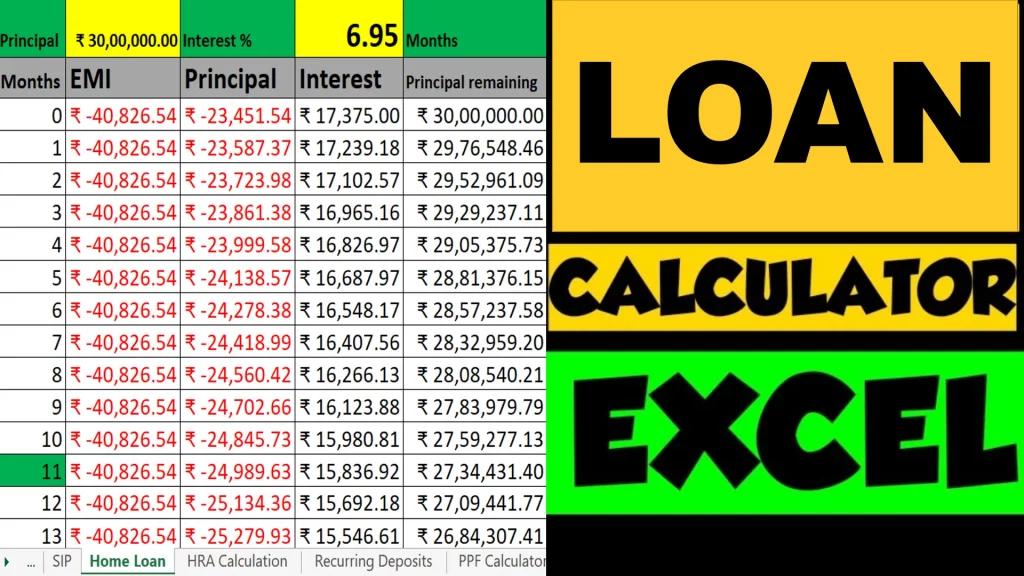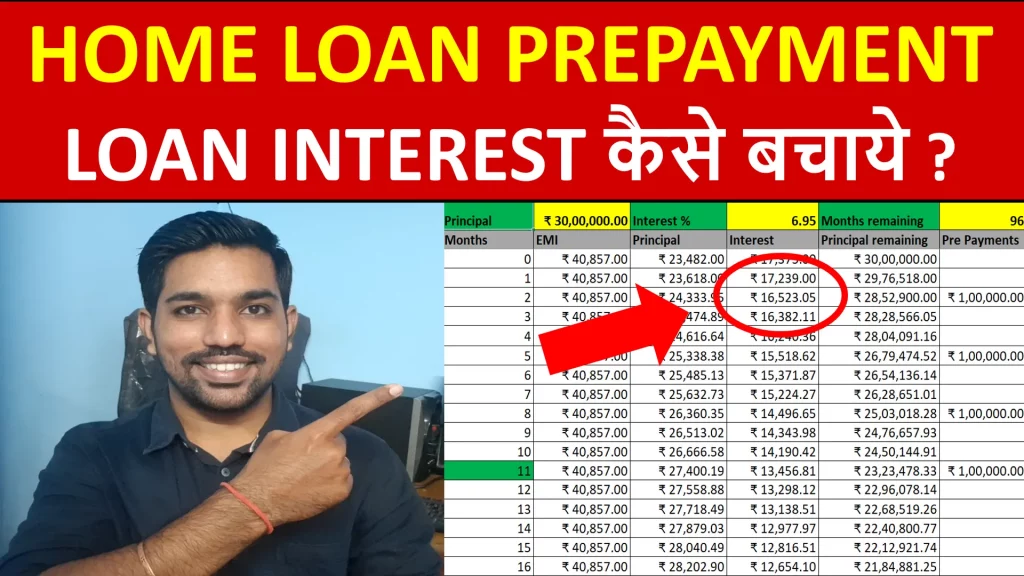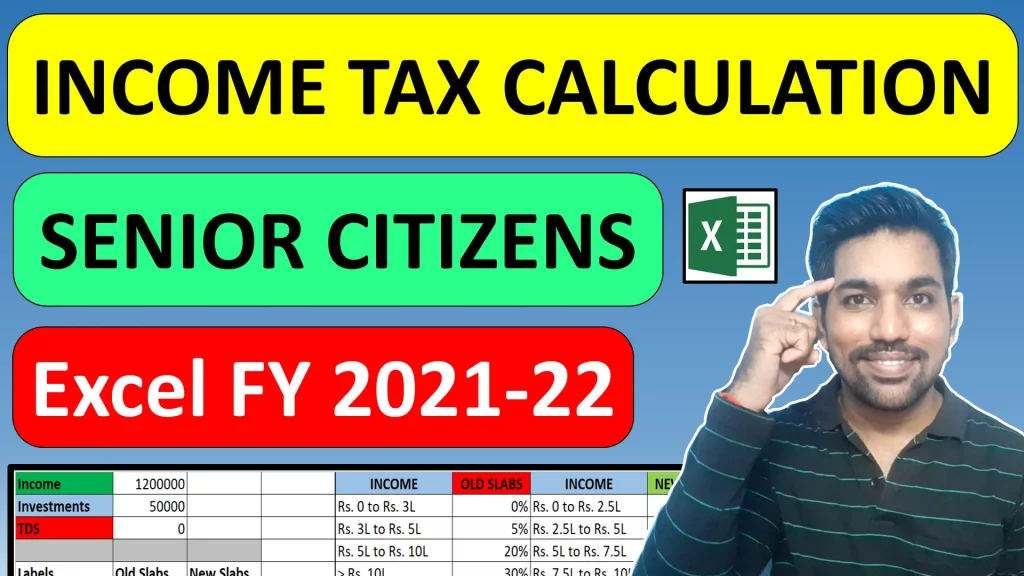Section 80EEB of Income Tax Act helps you to claim Electric vehicle loan interest amount up to Rs. 1,50,000 in a financial year. But there is a condition – the loan must have been sanctioned between 1st April 2019 to 31st March 2023, according to Budget 2023 speech of Finance Minister. The Deduction is applicable to both 2 wheeler and 4 wheeler EVs.
You can easily get the loan interest amount provisional certificate to know how much interest you have paid in FY. Any interest amount above Rs. 1,50,000 will not be considered for deduction under Section 80EEB.
What is Section 80EEB Exemption?
According to Section 80EEB of Income Tax Act, you you have bought electric vehicle (2 wheeler or 4 wheeler) on loan, from banking or financial institution, you are eligible to claim loan interest amount you pay in the financial year, only when your loan is sanctioned between 1st April 2019 to 31st March 2023.
You can use the Car loan EMI calculator to know the loan EMI and total interest you’ll pay throughout the loan tenure:

How do you know the interest portion of your EV loan?
You can get the provisional certificate for the loan interest paid in FY from the bank you have taken loan
Also, for your EMI portion:
Monthly EMI = Principal Amount + Interest Amount
This interest portion of EMI you pay every month is added for entire financial year to get the total interest you pay in your electric vehicle loan. This entire interest amount can be claimed in the financial year.
Conditions to claim Section 80EEB
There are certain conditions to claim deduction under Section 80EEB for your EV loan:
- Section 80EEB deduction is available for individuals only, and not HUF or companies
- An individual must have taken the electric vehicle loan between 1st April 2019 to 31st March 2023
- Maximum of Rs. 1,50,000 can be claimed using Section 80EEB on your EV loan (only interest portion)
- Principal amount cannot be claimed to save income tax
- For interest portion above Rs. 1.5 lakh, you can mention the additional amount as a business expense
ALSO READ: Save Income Tax on Salary above 7 Lakh
Do we need to submit proof for 80EEB?
Yes the proof of loan interest payment need to be submitted while filing ITR in order to claim the deduction under Section 80EEB.
The loan interest certificate can be obtained from the bank or financial institution from where loan is taken.
Section 80EEB with Example
Let us take an example of how much interest you can save on electric vehicle loan. In this example we will consider car loan for calculation purpose:
Example:
EV Loan Amount = Rs. 5 Lakh
Interest Rate = 12%
Tenure = 36 months
Below is the screenshot of calculations:
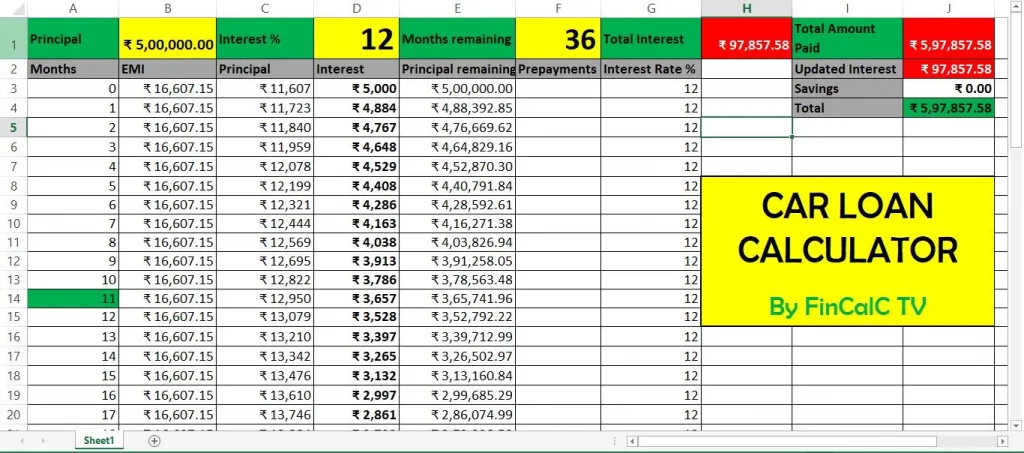
As seen above, you pay interest amount of Rs. 52,078 in the first 12 months of your car loan. If these mounts are same as financial year (April to March), then you can claim it under Section 80EEB and need not have to pay tax on it based on your income.
Similarly, you can download the car loan EMI Excel calculator using below form
Download EV Car Loan EMI Excel Calculator
Click below button to download EV car loan in excel:
How much tax I can save on electric bike?
Similar to saving tax on EV car loan, you can claim maximum of Rs. 1.5 Lakh as interest amount in your EV bike loan as well.
Section 80EEB allows you to claim deduction on 2 wheeler and 4 wheeler EV loans.
ALSO USE: Bike Loan EMI Calculator
For how many years can I claim a deduction under section 80EEB?
You can claim the deduction throughout the loan tenure provided your loan is sanctioned between 1st April 2019 to 31st March 2023.
Every year you can claim the interest portion paid in the form of EV loan EMIs.
Conclusion
So buying Electric vehicle helps us not only to control air pollution but also to save income tax under Section 80EEB using the EV loans. Maximum limit that can be claimed in a financial year is Rs. 1.5 lakh.
Currently, only those loans are eligible for deductions which were sanctioned during the period of 1st April 2019 to 31st March 2023. May be in future we can see the extension of this period so that more people can buy electric vehicles, considering that Government of India wants to promote the green initiatives!
Comment below if you have bought Electric vehicle on loan.
Some more Reading:
Save Home Loan Interest Amount!
Use Home Loan Excel Calculator that will help you to Save Interest Amount on Home Loan EMI.
Click below button to download Home Loan EMI and Prepayment Calculator in Excel:
Watch how Home Loan Calculator in Excel Works
Income Tax Calculator App – FinCalC
For Income Tax Calculation on your mobile device, you can Download my Android App “FinCalC” which I have developed for you to make your income tax calculation easy.
What you can do with this mobile App?
- Calculate Income Tax for new FY 2024-25 and previous FY 2023-24
- Enter estimated Investments to check income tax with Old and New Tax Regime
- Save income tax details and track regularly
- Know how much to invest more to save income tax
- More calculators including PPF, SIP returns, Savings account interest and lot more
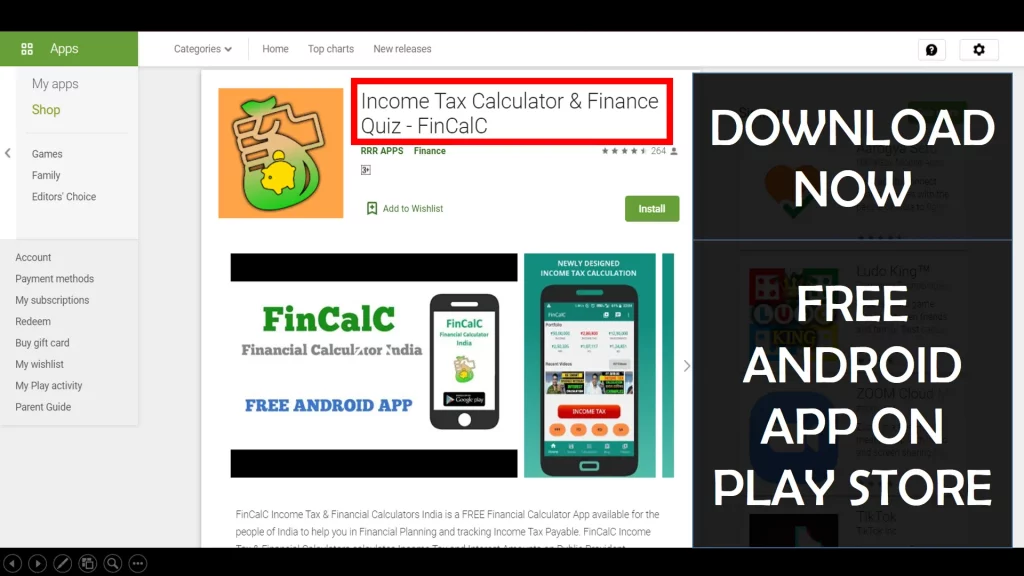
Use Popular Calculators:
- Income Tax Calculator
- Home Loan EMI Calculator
- SIP Calculator
- PPF Calculator
- HRA Calculator
- Step up SIP Calculator
- Savings Account Interest Calculator
- Lump sum Calculator
- FD Calculator
- RD Calculator
- Car Loan EMI Calculator
- Bike Loan EMI Calculator
- Sukanya Samriddhi Calculator
- Provident Fund Calculator
- Senior Citizen Savings Calculator
- NSC Calculator
- Monthly Income Scheme Calculator
- Mahila Samman Savings Calculator
- Systematic Withdrawal Calculator
- CAGR Calculator
I’d love to hear from you if you have any queries about Personal Finance and Money Management.
JOIN Telegram Group and stay updated with latest Personal Finance News and Topics.
Download our Free Android App – FinCalC to Calculate Income Tax and Interest on various small Saving Schemes in India including PPF, NSC, SIP and lot more.
Follow the Blog and Subscribe to YouTube Channel to stay updated about Personal Finance and Money Management topics.

